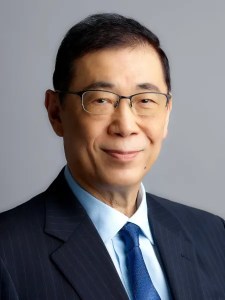Editor’s note: Gov. Brian Kemp’s touchdown in Tokyo this week comes at a pivotal moment in the U.S.-Japan relationship, as the two sides work through trade tensions and as President Donald Trump meets Monday with new Prime Minister Sanae Takaichi.
It’s also a point of transition in the state’s half-century-old office in Tokyo, helmed by a director installed in July with extensive experience in promoting bilateral trade in sectors like food, manufacturing and beyond.
But to hear new Managing Director Takao Yamamoto tell it, the same old factors that have brought Georgia 50-plus years of success in Japan — solid friendships, tended with care, concern and mutual trust — will continue to be defining factors, whatever turbulence may threaten larger bilateral ties.
Mr. Yamamoto took a moment out of his time preparing for Mr. Kemp’s visit to reflect on his new role, the state’s approach to nurturing Japanese expansions over decades, and even how Georgia companies can think about accessing the Japanese market.
The stakes are high: As the governor said in a news release announcing meetings with investors in Osaka and Tokyo before the SEUS-Japan conference kicks off Tuesday:
“Japan-based companies employ more Georgians than any other international business community in the state. Georgia’s deep partnership with Japan stretches more than 50 years, and I am glad to continue that long and storied relationship during this visit.”
Global Atlanta is traveling in Tokyo with the Georgia delegation. Below is the emailed Q&A with Mr. Yamamoto, who also addresses why it’s so important to have the governor in Tokyo this week.
Global Atlanta: What inspired you to take this job with the state of Georgia? What is its reputation like in Japan, and how do you plan to bring a fresh approach to its outreach in Japan while also sticking to the formula that has worked so well?
I had known about Georgia Department of Economic Development since my time at the Japan External Trade Organization (JETRO) and was always impressed by its strategic vision and practical execution.
 Takao Yamamoto is the new head of Georgia’s Tokyo office in Japan.
Takao Yamamoto is the new head of Georgia’s Tokyo office in Japan.
Even then, I had a strong sense that Georgia was one of the most promising and fastest-growing states in the U.S. As someone who has always aspired to work in an international context, I see this role as a unique opportunity to serve as a bridge between Japan and the United States – especially Georgia.
Building on trusted platforms like SEUS-Japan and more than 50 years of representation in Japan, Georgia can continue to deepen its reputation through collaboration in areas such as clean energy, AgTech, and advanced manufacturing. Strengthening people-to-people connections through education, workforce exchange, and cultural engagement could also play a critical role in sustaining and enhancing Georgia’s standing in Japan.
You’ve got a long history in the food business — where do you think the opportunities are for Georgia in this sector when it comes to recruiting Japanese companies? We already have Marukan, Yakult and other food brands investing heavily in the state. How do we build on those?
What is true for attracting food processing companies is also true for attracting many Japanese companies. Georgia is one of the most business-friendly states in the U.S., offering outstanding logistics infrastructure, strong workforce development programs, and highly competitive operating costs.
Georgia’s strength lies not just in attracting new companies, but in creating an environment where they choose to reinvest and expand. While we are always open to welcoming new investment from Japanese companies, particularly in sectors like automotive, food processing, semiconductors, and life sciences, we place equal importance on supporting those who have already invested in Georgia.
Many Japanese manufacturers have been operating in Georgia for years, growing together with the local community. Our priority is to nurture these relationships and assist with their second- and third-phase investments. We aim to be a long-term partner by helping existing investors grow sustainably, optimize operations, and connect with new opportunities within the state.
To become even more attractive to Japanese companies, communities can focus on nurturing bilingual talent, improving Japanese-friendly services such as healthcare and education, and strengthening relationships with existing Japanese investors.
Additionally, encouraging Japanese companies and stakeholders to visit and directly experience what Georgia has to offer can open up new opportunities for investment, collaboration, and deeper mutual understanding.
How are you viewing these times of uncertainty around U.S.-Japan trade?
Subnational engagement provides a stable and resilient framework, especially during uncertain global circumstances. Through SEUS-Japan and its Japan office, Georgia has built trusted relationships with Japan for decades. These enduring ties ensure continuity in economic cooperation and dialogue even in times of volatility.
What is your vision about how exports/trade support investment? Can you talk about the complementarity between these two things, which are often seen as at odds with each other?
Trade and investment are mutually reinforcing.
Japanese companies investing in Georgia often create new trade flows, such as exporting locally made products back to Japan. Conversely, when Georgia-made products gain traction in Japan, they can open doors to further Japanese investment.
Creating and supporting this positive cycle is at the core of what we do.
Georgia’s logistics infrastructure, including Hartsfield-Jackson Atlanta International Airport and the Port of Savannah, offers significant advantages for global trade and investment. For Japanese companies, these hubs provide fast, reliable access to the North American market, reducing logistics costs and enhancing supply chain efficiency.
How important is it from the Japanese perspective to have Gov. Kemp present at this year’s event, especially given that it’s the first SEUS to be held in Japan after the 50th anniversary in 2023? What types of support are Japanese companies looking for from state governments, especially at this time of upheaval? How important is it for Georgia to be active, given that it is competing with other states in the Southeast U.S. and beyond?
SEUS-Japan is a symbolic platform that reflects Georgia’s long-standing trust-based relationship with Japan.
Japanese companies value consistency and continuity from government partners. In an increasingly competitive landscape, Georgia’s active participation in SEUS-Japan, in addition to the 1973-established office there, reinforces its reliability and strengthens its positioning as a trusted and attractive destination for Japanese investment.
In Japanese business culture, direct involvement by leadership carries great significance.
Governor Kemp’s presence at SEUS-Japan signals Georgia’s deep commitment to the partnership. Notably, in 2019, Governor Kemp proclaimed “Emperor’s Day” to honor Emperor Naruhito’s accession – an act that resonated strongly in Japan as a gesture of respect and friendship. This kind of engagement builds valuable trust with Japanese stakeholders.
Governor Kemp’s presence at SEUS-Japan signals Georgia’s deep commitment to the partnership.
takao yamamoto
How do you envision helping Georgia companies expand into the Japanese market, and what are the main hurdles in this regard and/or opportunities? In which industry sectors do you see the most potential?
For Georgia companies looking to export to Japan, it’s essential to first understand the market landscape, regulatory environment, and consumer expectations – especially regarding safety and quality standards in food and beverage.
GDEcD assists Georgia-based companies with tailored support, including market research, partner introductions, trade show guidance, and advice on cultural and business practices. Through our Japan office in Tokyo, we offer on-the-ground insight and relationships to help businesses navigate the Japanese market more effectively.
Georgia offers high-quality agricultural products such as pecans, peanuts, and poultry that represent strong opportunities for growth in Japan. Another example would be wood pallets made from Georgia’s sustainable forestry resources. Their quality and eco-friendly profile have begun to attract attention in the Japanese logistics and distribution sectors. With Japan’s strong focus on sustainability, Georgia’s wood-based materials could become a meaningful growth category in bilateral trade.
Participating in trade shows like FOODEX Japan and working with organizations like JETRO and GDEcD can be highly beneficial to raising awareness of Georgia-grown products.
Most importantly, building trusted relationships takes time in Japan, so companies should approach the market with a long-term commitment.
Learn more about Mr. Yamamoto’s appointment here: Georgia Names New Head of Japan Office in Advance of Key Tokyo Conference
From the archive:


AloJapan.com